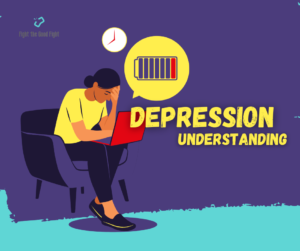Introduction
Compulsive Hypersexuality Behavior Disorder (CHBD) is a complex and often misunderstood condition characterized by an excessive preoccupation with sexual thoughts, fantasies, urges, and behaviors. Also known as sexual addiction or hypersexuality disorder, CHBD can have a profound impact on individuals’ lives, relationships, and overall well-being. In this article, we will delve into the nature of CHBD, its potential causes, symptoms, and available treatment options.
Understanding Compulsive Hypersexuality Behavior Disorder
CHBD is classified as an impulse control disorder and is characterized by an overwhelming and recurrent urge to engage in sexual activities or thoughts. Individuals with CHBD often experience an intense craving for sexual stimulation, which can lead to significant distress and impair their ability to function effectively in various areas of life, including personal relationships, work, and social interactions.
Causes and Risk Factors
The exact causes of CHBD are not yet fully understood, but a combination of genetic, biological, psychological, and environmental factors is believed to contribute to its development. Some common risk factors associated with CHBD include a history of trauma or abuse, certain mental health conditions (such as depression, anxiety, or obsessive-compulsive disorder), substance abuse, and certain medications that may influence sexual behavior.
Symptoms and Manifestations
The symptoms of CHBD can vary widely from person to person. Common manifestations of the disorder include:
- Obsessive thoughts and fantasies: Individuals with CHBD often experience intrusive and persistent sexual thoughts or fantasies that can be disruptive to their daily lives.
- Compulsive sexual behavior: Engaging in excessive sexual activities or behaviors, such as frequent masturbation, excessive pornography consumption, engaging in risky sexual encounters, or excessive use of online dating platforms, despite negative consequences.
- Emotional distress and shame: Feelings of guilt, shame, or low self-esteem often accompany the compulsive behavior, leading to emotional distress and a negative impact on self-image.
- Impaired relationships and social functioning: CHBD can strain personal relationships, as individuals may prioritize their sexual activities over meaningful connections with loved ones. It can also lead to social isolation and difficulties in maintaining healthy friendships.
Diagnosis and Treatment
Diagnosing CHBD can be challenging as it often involves a comprehensive evaluation by a mental health professional. An accurate diagnosis is essential for developing an effective treatment plan. Therapists or psychologists may use various assessment tools and conduct interviews to evaluate the severity and impact of symptoms on an individual’s life.
Treatment for CHBD typically involves a multidimensional approach, including:
1. Psychotherapy: Cognitive-behavioral therapy (CBT) and psychodynamic therapy are commonly used to explore the underlying causes of CHBD, address unhealthy thought patterns and behaviors, and develop healthier coping mechanisms.
2. Medication: In some cases, medication may be prescribed to manage co-occurring mental health conditions, such as depression or anxiety, that contribute to CHBD symptoms.
3. Support groups and self-help: Participating in support groups or seeking self-help resources can provide individuals with a sense of community, understanding, and practical strategies for managing CHBD.
4. Lifestyle changes: Adopting a healthy lifestyle, including regular exercise, stress management techniques, and improving overall self-care, can contribute to the recovery process.
Conclusion
Compulsive Hypersexuality Behavior Disorder is a challenging condition that can have significant impacts on individuals’ lives and relationships. Recognizing the symptoms and seeking appropriate professional help is crucial for effectively managing and treating CHBD. With a comprehensive treatment plan that may include therapy, medication, support groups, and lifestyle adjustments, individuals with CHBD can regain control over their lives, improve their well-being, and cultivate healthier relationships. Awareness and understanding of CHBD are essential for reducing stigma and providing support to those affected by this often debilitating condition.



